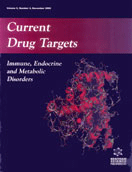Abstract
Pituitary adenomas are neuroendocrine tumors that produce different endocrine and metabolic alterations, including hyperprolactinemia, acromegaly and Cushings disease. These different clinical features of pituitary tumors are the result of the overproduction of hormones produced by the different pituitary cell types. Recent advances in the understanding of the signaling pathways that control hormone production in pituitary cells provide a source of potential therapeutic targets. In ACTH-secreting cells, the mechanisms that control hormone biosynthesis have been clarified to a great extent, indicating a number of protein kinases and ligand-activated nuclear receptors as targets for experimental drugs. ACTH production requires the activation of signal transduction through the PKA, the MAPK and the CamK pathways. These pathways activate nuclear receptors, including Nur and PPAR gamma. The inhibition of these kinases and nuclear receptors has been shown to produce therapeutic effects in mouse models of Cushings syndrome. On the other hand, the signaling pathways that control prolactin and growth hormone production also have potential targets. It has been recently shown that SMAD proteins activated by growth factors of the TGF beta and BMP family interact with estrogen receptors to stimulate the proliferation of prolactin and growth hormone-secreting cells. Cytokines that bind to the membrane protein gp130 also stimulate the proliferation of these cells. The inhibition of both of these pathways results in the decrease of tumor growth in animal models of prolactinoma. Therefore, the study of signaling pathways that control hormone production and proliferation is a good source of candidate targets in pituitary tumors.
Keywords: acth, pomc gene, protein kinase a, cytokine, signaling pathway, bmp-receptor















